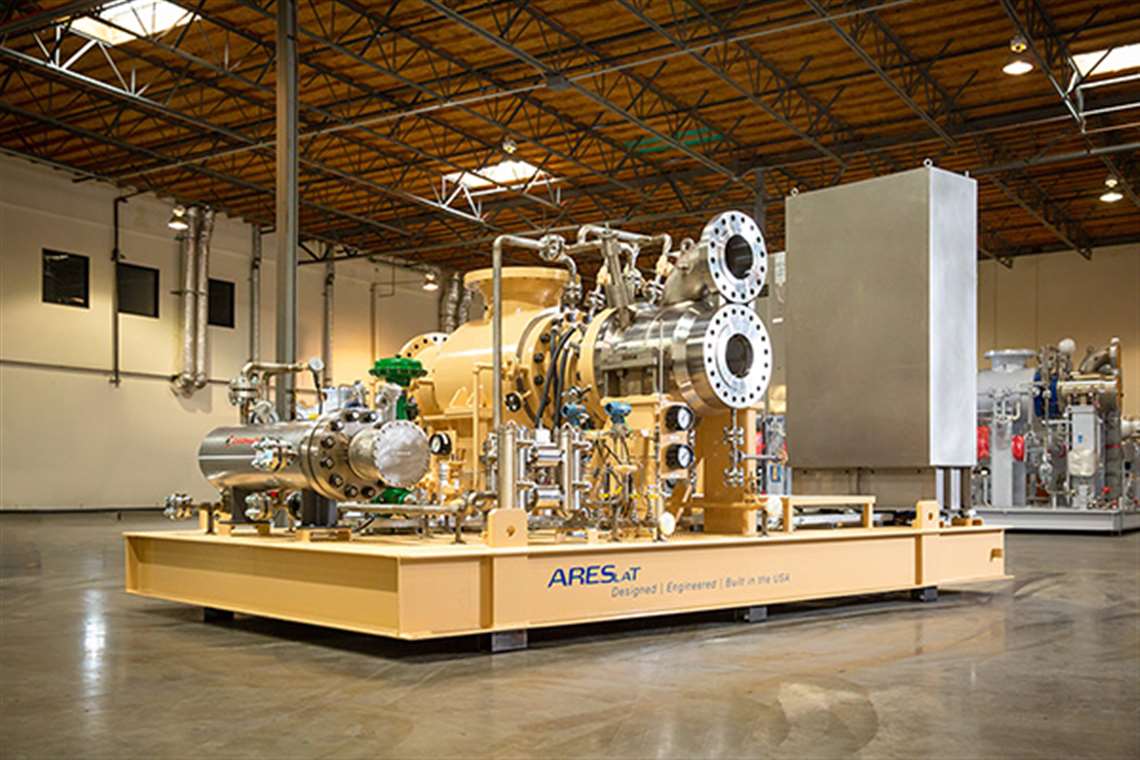L.A. Turbine Commissions First Ares AMB In Bakken
12 November 2019

L.A. Turbine (LAT) announced the commissioning of its first Ares Active Magnetic Bearing (AMB) turboexpander-compressor within a newly established natural gas liquid (NGL) processing plant in the Bakken Shale Play of North Dakota. The official machine start-up and gas flow occurred Oct. 29.
Designed for a plant flow rate of 200 mmscfd, the Ares AMB machine incorporates what the company said is the industry’s first skid-mounted AMB controller and PLC design. L.A. Turbine said it will continue to share turboexpander and AMB controller performance data updates from the NGL installation site in the coming months.
“This is a milestone moment for L.A. Turbine and for the industry,” said Danny Mascari, L.A. Turbine president. “In 2016, our founder, John Maskaluk, challenged his engineering team to develop the next generation of turboexpanders using AMB technology. Today this dream is fulfilled with the commissioning of the first LAT Ares AMB turboexpander in North Dakota.”
Maskaluk sought to level the playing field for magnetic bearing technology versus oil-lubricated bearings in turboexpanders. Traditionally the upfront costs of applying magnetic bearings to turboexpanders hindered their application, as did other factors, including lack of operational knowledge across the industry and longer delivery times.
The key to the new configuration was the placement of the controller and PLC on the skid itself rather than the more traditional method of running cables from the machine to a control room. This significantly reduced installation complexity and allows turboexpander packages to be pre-configured in advance, L.A. Turbine said.
L.A. Turbine teamed with Waukesha Magnetic Bearings on the development. A supplier of custom engineered magnetic bearing systems for turbomachinery and similar rotating equipment, Waukesha Magnetic Bearings supplied the Ares turboexpander-compressor with its AMB hardware, as well as the Zephyr five-axis digital controller. The controller features a web-server interface and a built-in condition monitoring system for diagnostics. The controller has the capability for flexible packaging options, along with automated commissioning and retrofitting options.
The controller’s diagnostic capabilities include event logging, trip datalogging, automatic clearance check, transfer function measurement, spectra capability, harmonic capture and built-in tools that designed to display compliance with ISO sensitivity performance criteria. The typical temperature rating of the Zephyr controller is 32° to 104°F (0° to 40°C). With a climate-controlled cabinet incorporated on the Ares skid, the possible temperature range is extended from as low as -40° to 110°F (-40° to 43°C).
“We are proud to be partnering with L.A. Turbine on this technological advance for turboexpanders,” said Brian Draeger, director of Sales for Waukesha Bearings. “The commissioning of this first unit is the realization of much hard work and a commitment to delivering innovation to the gas processing industry.”
STAY CONNECTED




Receive the information you need when you need it through our world-leading magazines, newsletters and daily briefings.
POWER SOURCING GUIDE
The trusted reference and buyer’s guide for 83 years
The original “desktop search engine,” guiding nearly 10,000 users in more than 90 countries it is the primary reference for specifications and details on all the components that go into engine systems.
Visit Now
CONNECT WITH THE TEAM









